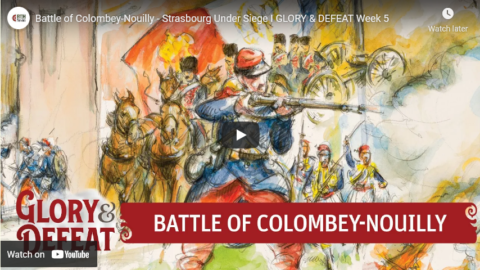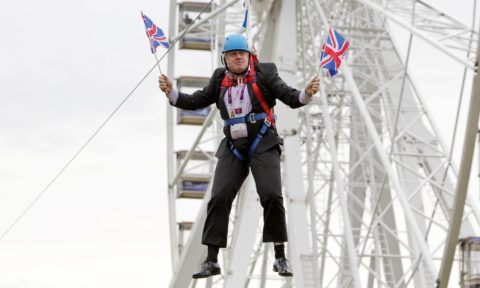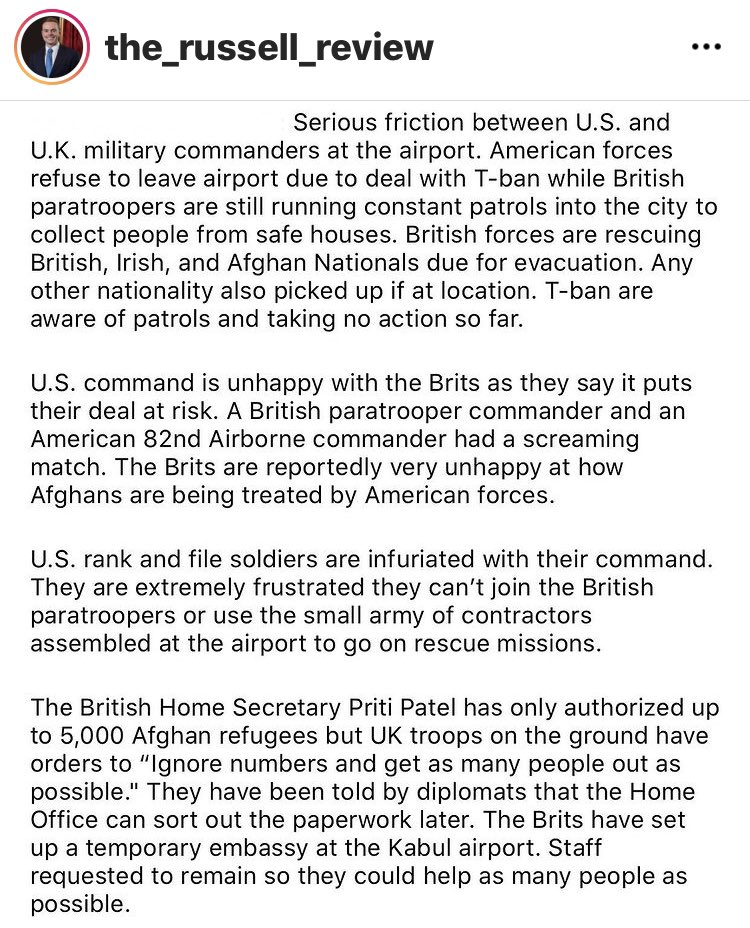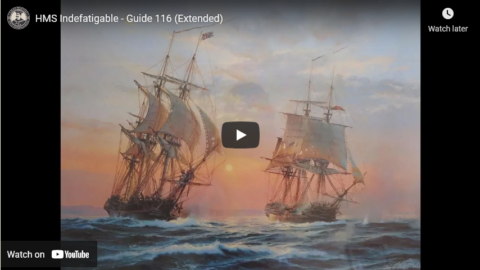realtimehistory
Published 12 Aug 2021Sign up for Curiosity Stream and get Nebula bundled in and SAVE 26%: https://curiositystream.com/realtimeh…
After the opening battles of the Franco-Prussian War, the German armies have suffered heavy casualties but were also able to stop French plans in their tracks. Now the French are withdrawing towards Metz and the symbolic city of Strasbourg is under siege.
» THANK YOU TO OUR CO-PRODUCERS
John Ozment
James Darcangelo
Jacob Carter Landt
Thomas Brendan» OUR PODCAST
https://realtimehistory.net/podcast – interviews with historians and background info for the show.» LITERATURE
Arand, Tobias: 1870/71. Die Geschichte des Deutsch-Französischen Krieges erzählt in Einzelschicksalen. Hamburg 2018Mährle, Wolfgang (Hrsg.): Nation im Siegesrausch. Württemberg und die Gründung des Deutsches Reichs 1870/71. Stuttgart 2020
Milza, Pierre: L’année terrible. La guerre franco-prussienne septembre 1870 – mars 1871. Paris 2009
Roux, Georges: La Guerre de 1870. Paris 1966
» SOURCES
Bodenhorst, Georges: Le siége de Strasbourg en 1870. Paris. u.a. 1876Engels, Friedrich: “Notes on the war, No. 5”, in: The Pall Mall Gazette Nr. 1712 vom 9. August 1870
Engels, Friedrich: “Der Deutsch-Französische Krieg 1870/71“. Sechzig Artikel aus der Pall Mall Gazette. Berlin (Ost) 1957
Fontane, Theodor: Der Krieg gegen Frankreich. Bd.1 und 2. Berlin 1873
» OUR STORE
Website: https://realtimehistory.net»CREDITS
Presented by: Jesse Alexander
Written by: Cathérine Pfauth, Prof. Dr. Tobias Arand, Jesse Alexander
Director: Toni Steller & Florian Wittig
Director of Photography: Toni Steller
Sound: Above Zero
Editing: Toni Steller
Motion Design: Philipp Appelt
Mixing, Mastering & Sound Design: http://above-zero.com
Maps: Battlefield Design
Research by: Cathérine Pfauth, Prof. Dr. Tobias Arand
Fact checking: Cathérine Pfauth, Prof. Dr. Tobias ArandChannel Design: Battlefield Design
Contains licensed material by getty images
All rights reserved – Real Time History GmbH 2021
August 20, 2021
Battle of Colombey-Nouilly – Strasbourg Under Siege I GLORY & DEFEAT Week 5
“They were there to debate Afghanistan, a far-away country of which it turns out that we know even less than we thought”
The British government recalls Parliament to debate the situation in Afghanistan (not that there’s much to be done at this late stage, but formalities are at least being observed in a perfunctory manner):
The House of Commons was full, for the first time since last March. Members of Parliament had been brought back from their holidays, from West Country campsites and from Greek resorts, in a repatriation operation that puts the Foreign Office to shame.
They were there to debate Afghanistan, a far-away country of which it turns out that we know even less than we thought. It was only last month that Boris Johnson was assuring MPs that “there is no military path to victory for the Taliban”, although we now know that path was straight along the road to Kabul, as fast as their trucks could carry them.
Now Johnson was back to explain that things had turned out to be a bit more complicated than he thought. Or perhaps a bit simpler: we’ve gone, they’re back. Parliament was getting eight hours to discuss this, although it was too late to do very much about it. It wasn’t so much shutting the stable door after the horse had bolted as holding a long discussion about the history of equine care as the stallion in question disappeared over the horizon.
Still, the atmosphere was jolly. Many of these MPs haven’t seen each other in over a year. There was a first-day-of-term feel to things. With Parliament’s Covid restrictions lapsed, the Conservatives were wedged in together in the small, windowless chamber, barely a facemask in sight. The government’s instructions are still to wear masks in crowded places, but the Conservatives view Covid as some sort of socialist conspiracy that will go away if they ignore it. Or maybe they just feel that rules are for the little people.
Labour MPs had at least nodded to social distancing, sitting about 18 inches apart from each other. This is, admittedly, easier when there aren’t very many of you. The opposition benches were a sea of masks. Only the Democratic Unionists, who like the Tories see illness as a sign of moral failure, were a lone island of uncovered faces.
Johnson’s statement was, as ever, a masterpiece of bare adequacy. It eloquently just about dealt with the matter in question, magisterially pretty much covering the bases. The speechwriters, one sensed, must have been working on the words late into the previous afternoon. They had gone through as many as one draft as they tried to come up with something that, if it didn’t deal with every complex nuance of the Afghan tragedy, at least asked the question that Johnson lives by: “Will this do?”
The situation in Afghanistan was a “concern”, the prime minister explained, with what might, in another context, have been a brilliantly comic understatement. Over the past 20 years, the British had worked for a better future for the people of Afghanistan. “Some of this progress,” the prime minister said, “is fragile”, which is certainly one way of putting it.
What had gone wrong with our intelligence services, several people asked, that they had so comprehensively failed to see this coming? Be fair, replied Johnson, even the Taliban had been surprised by the speed of their own advance.
On the US Naval Institute Blog, CDRSalamander notes the only speech in the House of Commons during that debate that grabbed and held the attention of the entire body:
Let’s back away from the problem at hand a bit … and then back up further. I mentioned it earlier, but let’s bring it up again; national humiliation. There are different aspects of this growing humiliation that are already manifesting itself, the first of which is how others look at us.
Let’s start with our closest friend and take a moment to listen to a speech earlier today in the British House of Commons by Tom Tugendhat, MP.
The mission in Afghanistan wasn’t a British mission, it was a Nato mission. … And so it is with great sadness that I now criticise one of them. … To see their commander-in-chief call into question the courage of men I fought with — to claim that they ran. It is shameful. … this is a harsh lesson for all of us and if we are not careful it could be a very, very difficult lesson for our allies. … to make sure we are not dependent on a single ally, on the decision of a single leader, but that we can work together with Japan and Australia, with France and Germany, with partners large and small, and make sure we hold the line together.
That is our closest friend outlining a loss of confidence. That is just one datapoint from a friend, but it is safe to say that it is probably somewhere in the center of opinion.
What are those nations who are not our friends thinking? I don’t think I need to spend all that much time on discussing how emboldened they are. It is self-evident to anyone who reads USNIBlog.
On the ground, troops of 2nd Battalion, The Parachute Regiment are actively involved in escorting British and Afghani civilians from safe houses to Kabul airport for evacuation:
At least one NATO country hasn’t forgotten the civilians who have been left behind during the precipitate withdrawal by US troops.
HMS Indefatigable – Guide 116 (Extended)
Drachinifel
Published 6 Apr 2019HMS Indefatigable, a razee frigate of the British Royal Navy, is today’s subject.
Want to support the channel? – https://www.patreon.com/Drachinifel
Want to talk about ships? https://discord.gg/TYu88mt
Want to get some books? www.amazon.co.uk/shop/drachinifel
QotD: First Ministers Conferences
What is the point of a First Ministers Conference?
There is no actual necessity for them, you understand. The federal and provincial governments are quite able to function within their respective jurisdictions without their leaders dashing off across the country at regular intervals to quiver their jowls at each other. The first such meeting was not held until 1906. Just 10 more “dominion-provincial conferences” occurred over the next 40 years. Not until the 1950s did they become the semi-annual affairs we know today. That this was also when the TV cameras arrived is possibly not coincidental.
If there were actual business to transact, it could just as easily be arranged by subordinates, or over the phone, or via video-conference. Or if an issue were so thorny that it genuinely required a fleshly first-ministerial encounter, the prime minister could always meet bilaterally with the premier or premiers involved, as Stephen Harper did.
But a full-on, capital-F First Ministers Conference, official cars, flag-backed lecterns and all? There is invariably but one purpose to these: for the 10 premiers to corner and harass the prime minister, using the imbalance in their numbers to depict the feds as the outlier. Sometimes this is in furtherance of the premiers’ perennial campaign for more federal cash. Sometimes, as in the current exercise, the point seems to be conflict for conflict’s sake. But always — always — it is theatre.
Only it is theatre of a peculiar kind: with the curtains drawn and the sound down, the audience being instead entertained by periodic reports from agents for each of the actors about who said what. Thus the breathless dispatches from reporters orbiting the conference — they are kept well away from the actual meeting room — every line of it originating from sources, federal or provincial, with a professional interest in puffing one leader or the other.
Andrew Coyne, “A semi-annual opportunity for premiers to strut and preen and accomplish nothing”, National Post, 2018-12-07.







